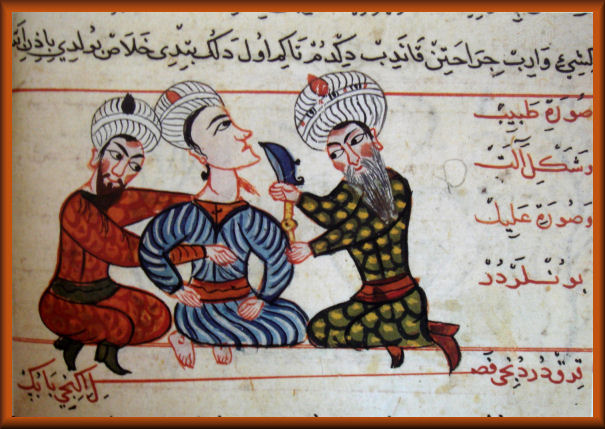The Brethren of Purity (Arabic: اخوانالصفا ikhwãn al-safã; also The Brethren of Sincerity) were a secret society of Muslim philosophers in Basra, Iraq, in the 8th century CE.
The structure of this mysterious organization and the identities of its members have never been clear. Their esoteric teachings and philosophy are expounded in an epistolary style in the Encyclopedia of the Brethren of Purity (Rasa’il Ikhwan al-safa’), a giant compendium of 52 epistles that would greatly influence later encyclopedias. A good deal of Muslim and Western scholarship has been spent on just pinning down the identities of the Brethren and the century in which they were active.
The Arabic phrase Ikhwan al-Safa (short for, among many possible transcriptions, Ikhwān aṣ-Ṣafāʾ wa Khullān al-Wafā wa Ahl al-Ḥamd wa abnāʾ al-Majd, meaning “Brethren of Purity, Loyal Friends, People worthy of praise and Sons of Glory”) can be translated as either the “Brethren of Purity” or the “Brethren of Sincerity”; various scholars such as Ian Netton prefer “of Purity” because of the group’s ascetic impulses towards purity and salvation.
In this Brotherhood, self is forgotten; all act by the help of each, all rely upon each for succour and advice, and if a Brother sees it will be good for another that he should sacrifice his life for him, he willingly gives it.
The Brethren regularly met on a fixed schedule. The meetings apparently took place on three evenings of each month: once near the beginning, in which speeches were given, another towards the middle, apparently concerning astronomy and astrology, and the third between the end of the month and the 25th of that month; during the third one, they recited hymns with philosophical content.[6] During their meetings and possibly also during the three feasts they held, on the dates of the sun’s entry into the Zodiac signs “Ram, Cancer, and Balance”), besides the usual lectures and discussions, they would engage in some manner of liturgy reminiscent of the Harranians.
